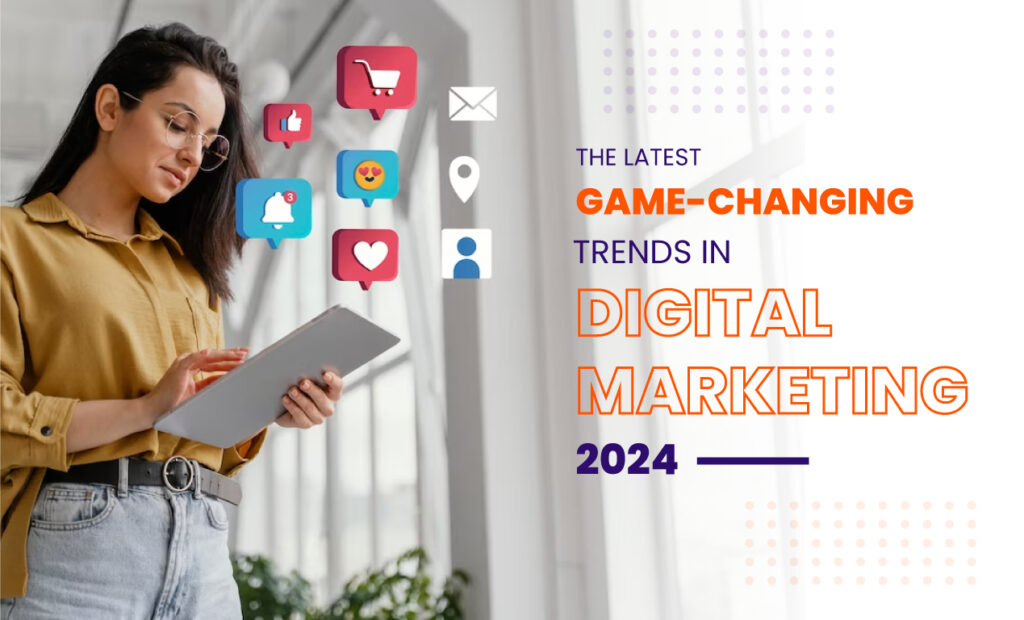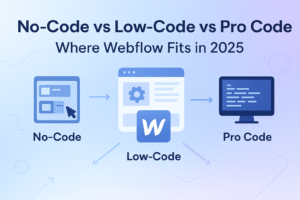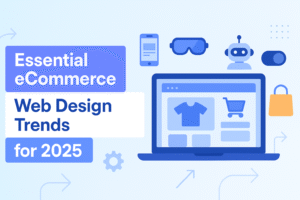Introduction Of Trends in Digital Marketing:
In the ever-evolving landscape of digital marketing, staying ahead of the curve is essential for businesses striving to make their mark in the online realm. As we step into 2024, the digital marketing arena is witnessing groundbreaking shifts that are reshaping strategies and tactics. In this blog, we delve into the latest research to unveil the top 10 trends in digital marketing that will dominate the scene in 2024.
Latest Research of Trends in Digital Marketing for 2024:
Recent studies and industry analyses reveal a dynamic landscape characterized by technological advancements, changing consumer behavior, and a renewed emphasis on ethical and personalized marketing. The trends outlined below are set to redefine how businesses approach digital marketing in the coming year.
LIST OF TRENDS IN DIGITAL MARKETING 2024:
Here is the list of Top 7 Trends in Digital Marketing for 2024 which helpful for enhancing growth and success in digital marketing strategies which are following.
1. AI-Powered Personalization:
In 2024, personalized marketing will take a giant leap forward with the integration of artificial intelligence. AI algorithms analyze vast amounts of data to understand individual preferences, enabling marketers to deliver hyper-personalized content, recommendations, and experiences. This trend not only enhances user engagement but also boosts conversion rates.
Role of AI-Powered Personalization in Trends in Digital Marketing:
AI-Powered Personalization is a game-changer in trends in digital marketing, leveraging artificial intelligence to provide tailored user experiences. Key aspects include:
- Enhanced User Experience: AI analyzes user data to deliver personalized content, boosting engagement and satisfaction.
- Dynamic Content Recommendations: Algorithms dynamically adjust and recommend content based on user behavior, improving conversion chances.
- Behavior Prediction and Segmentation: AI predicts user behavior, allowing marketers to create accurate customer segments for targeted campaigns.
- Automated Personalization at Scale: AI efficiently automates personalization efforts, ensuring scalability as audience size grows.
- Real-Time Adaptability: AI adapts marketing strategies in real-time based on changing user preferences, maintaining relevance.
- Optimized Customer Journey: Personalization optimizes every touchpoint, fostering brand loyalty through a seamless customer experience.
- Improved Conversion Rates: Tailored content increases the likelihood of desired user actions, leading to higher conversion rates.
- Data-Driven Insights: AI generates valuable insights from user data, informing data-driven decision-making for future strategies.
2. Augmented Reality (AR) Marketing:
The fusion of digital and physical worlds through augmented reality is gaining momentum. AR marketing allows consumers to interact with products virtually before making a purchase, creating immersive and engaging experiences.
Augmented Reality (AR) marketing is revolutionizing digital strategies: Immersive Product Experiences: AR enables users to visualize products in their environment, boosting confidence in purchase decisions.
- Immersive Product Experiences: AR enables users to visualize products in their environment, boosting confidence in purchase decisions.
- Interactive Advertising: AR breathes life into ads, allowing users to interact with content, play games, and unlock exclusive offers.
- Virtual Try-Ons and Sampling: AR facilitates virtual testing of beauty and fashion products, enhancing the online shopping experience.
- Enhanced In-Store Experiences: AR enriches brick-and-mortar stores with interactive displays, navigation assistance, and product information overlays.
- AR-powered Social Engagement: Social media platforms use AR filters and lenses for shareable, entertaining content.
- Gamification for Brand Interaction: AR gamification creates memorable brand experiences through interactive games and challenges.
- Storytelling through AR Narratives: Brands use AR to tell compelling stories by overlaying digital elements onto the physical world.
- Data-Driven Insights: AR provides valuable data on user interactions, informing future marketing strategies.
- QR Code Integration: AR-enabled QR codes connect the physical and digital worlds, unlocking interactive content.
- Education and Training Applications: AR extends beyond marketing, with applications in education and training for immersive simulations.
In essence, AR marketing offers engaging, interactive, and memorable experiences, reshaping the way brands connect with their audiences in the digital age.
3. Voice Search Optimization:
With the rising popularity of voice-activated devices, optimizing for voice search is no longer optional. In 2024, digital marketers are focusing on conversational keywords, local search optimization, and providing concise, direct answers to user queries to align with the growing prevalence of voice search.
Voice search is booming with devices like Siri and Alexa. Marketers should:
Use Conversational Keywords:
- Prioritize Local SEO
- Aim for Position Zero
- Offer Quick Answers
- Optimize for Mobile
- Implement Structured Data Markup
- Understand User Intent
- Stay Adaptive
- Explore Voice Commerce
In essence, voice search optimization is crucial in the era of hands-free information retrieval, requiring marketers to adapt and optimize for a more conversational and immediate search experience.
4. Social Commerce Evolution:
Social media platforms continue to evolve into comprehensive e-commerce hubs. In 2024, expect to see enhanced shopping features on platforms like Instagram, Facebook, and Pinterest, with integrated checkout options, live shopping events, and shoppable content, creating a seamless shopping experience within social environments.
Social commerce is transforming digital marketing:
- Integrated Shopping on Social Media: Platforms become e-commerce hubs with integrated shopping features.
- Shoppable Content and Live Shopping: Real-time shopping experiences on platforms like Instagram and Facebook.
- Influencers Driving Direct Sales: Influencers facilitate direct purchases through their social media profiles.
- User-Generated Content as Social Proof:Customers share experiences, creating social proof that influences others.
- AR Try-Ons for Virtual Shopping: Augmented reality enhances the online shopping experience with virtual try-ons.
- Seamless Checkout and Payment: Simplified processes and payment integration within social platforms.
- Data-Driven Personalization: Utilizing user data for personalized recommendations and content.
- Chatbot Assistance in Purchasing: Chatbots provide real-time support and guidance in purchasing decisions.
- Social Listening for Market Insights: Gathering customer insights to refine social commerce strategies.
- Community Building and Loyalty Programs: Beyond transactions, brands focus on building communities and fostering loyalty.
In essence, social commerce is reshaping how consumers discover and purchase products within the social media landscape.
5. Blockchain for Enhanced Security:
In an era of increasing concerns about data privacy and security, blockchain technology emerges as a key player. Marketers are exploring blockchain for transparent and secure data transactions, ensuring trust among consumers and minimizing fraudulent activities in digital advertising.
6 Live Video Dominance:
Live video continues to be a powerful tool for engagement. Social media platforms and other digital channels are prioritizing live content, allowing brands to connect with their audience in real-time, showcase products, and build authentic relationships.
7. Interactive Content Experiences:
Interactive content is reshaping digital marketing by fostering dynamic engagement. From interactive videos, quizzes, and augmented reality (AR) filters to gamification, immersive 360-degree videos, and interactive storytelling, brands are creating participatory experiences. Whether through interactive emails, webinars, or user-generated content challenges, this approach transforms passive consumers into active participants. Chatbots contribute to personalized conversations, while personalized assessments and calculators offer tailored insights. Interactive content not only captivates audiences but also builds a deeper connection between brands and users, driving higher engagement and conversions in the digital realm.
Conclusion:
As we embark on the journey through 2024, these trends in digital marketing are set to redefine the way businesses connect with their audiences. Staying informed and adapting to these dynamic shifts will be crucial for brands seeking to thrive in the competitive digital landscape and follow these all trends in digital marketing. Embrace these trends, innovate your strategies, and position your brand at the forefront of the digital marketing revolution.
Want to get the best digital marketing service? Contact Shreeji Software today! 📞 Call us at +91 8000563158 (India), ✉️ email us at shreejisoftware1@gmail.com, or live chat on WhatsApp. Don’t forget to fill out our contact form for more information. Together, let’s create eye-catching visuals that tell the unique storyline of your company.











